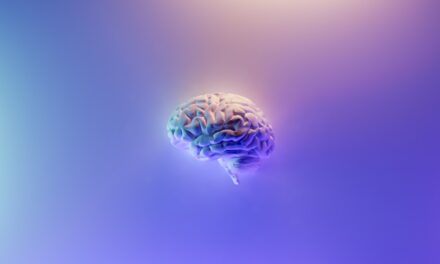Integrative mental health care is a holistic approach to mental well-being that combines traditional and alternative therapies to address the physical, emotional, and spiritual aspects of mental health. This approach recognizes that mental health is influenced by a variety of factors, including genetics, environment, lifestyle, and personal experiences. Integrative mental health care aims to treat the whole person, rather than just the symptoms of a specific mental health condition. This approach also emphasizes the importance of collaboration between different healthcare providers, including psychiatrists, therapists, nutritionists, and other holistic practitioners.
Integrative mental health care also takes into account the individual’s unique needs and preferences. It recognizes that what works for one person may not work for another, and that a personalized approach is essential for effective treatment. This approach also encourages individuals to take an active role in their own mental health care, empowering them to make informed decisions about their treatment options. By addressing the underlying causes of mental health issues and promoting overall well-being, integrative mental health care offers a comprehensive and sustainable approach to mental health.
The Importance of Holistic Approach to Well-being
A holistic approach to well-being is essential for promoting mental health and overall wellness. This approach recognizes that the mind, body, and spirit are interconnected, and that each aspect plays a crucial role in a person’s overall well-being. By addressing all aspects of a person’s health, including physical, emotional, and spiritual needs, a holistic approach can help individuals achieve balance and harmony in their lives. This can lead to improved mental health, increased resilience, and a greater sense of overall well-being.
In addition, a holistic approach to well-being can help individuals develop healthy coping mechanisms and reduce the risk of developing mental health issues. By addressing the root causes of stress, anxiety, and other mental health challenges, individuals can learn to manage their symptoms more effectively and improve their overall quality of life. This approach also emphasizes the importance of self-care and self-awareness, encouraging individuals to take an active role in their own well-being. By promoting a balanced and integrated approach to health, a holistic approach can help individuals achieve optimal mental health and overall wellness.
Exploring Different Modalities of Integrative Mental Health Care
Integrative mental health care encompasses a wide range of modalities and therapies that can be used to promote mental well-being. These modalities include traditional therapies such as psychotherapy and medication, as well as alternative therapies such as acupuncture, yoga, meditation, and nutritional counseling. Each modality offers unique benefits and can be tailored to meet the individual needs of each person seeking treatment.
Psychotherapy, for example, is a traditional therapy that can help individuals address underlying emotional issues and develop healthy coping mechanisms. Medication may also be used to manage symptoms of mental health conditions such as depression or anxiety. Alternative therapies such as acupuncture and yoga can help individuals reduce stress and improve their overall sense of well-being. Nutritional counseling can also play a crucial role in promoting mental health, as diet and nutrition have been shown to have a significant impact on mood and overall well-being.
By exploring different modalities of integrative mental health care, individuals can find the combination of therapies that works best for them. This personalized approach can help individuals address their unique needs and preferences while promoting overall mental well-being.
Integrating Traditional and Alternative Therapies for Mental Health
Integrative mental health care emphasizes the importance of integrating traditional and alternative therapies to promote mental well-being. Traditional therapies such as psychotherapy and medication can be complemented by alternative therapies such as acupuncture, yoga, meditation, and nutritional counseling. By combining these different modalities, individuals can address the physical, emotional, and spiritual aspects of their mental health.
For example, individuals with depression may benefit from a combination of medication and psychotherapy to manage their symptoms. They may also find relief from stress and anxiety through practices such as yoga or meditation. Nutritional counseling can also play a crucial role in promoting mental well-being by addressing the impact of diet and nutrition on mood and overall wellness.
By integrating traditional and alternative therapies for mental health, individuals can access a comprehensive approach to treatment that addresses their unique needs and preferences. This approach can help individuals achieve optimal mental well-being by addressing the root causes of their symptoms and promoting overall wellness.
The Role of Nutrition and Lifestyle in Mental Health
Nutrition and lifestyle play a crucial role in promoting mental health and overall well-being. Diet and nutrition have been shown to have a significant impact on mood, energy levels, and overall wellness. A diet rich in fruits, vegetables, whole grains, lean proteins, and healthy fats can help support optimal brain function and reduce the risk of developing mental health issues.
In addition to diet, lifestyle factors such as exercise, sleep, stress management, and social support also play a crucial role in promoting mental well-being. Regular physical activity has been shown to reduce symptoms of depression and anxiety, while adequate sleep is essential for cognitive function and emotional regulation. Stress management techniques such as meditation, mindfulness, and relaxation exercises can also help individuals reduce stress and improve their overall sense of well-being.
By addressing nutrition and lifestyle factors, individuals can take an active role in promoting their own mental health. Making healthy choices in these areas can help individuals manage symptoms of mental health conditions more effectively and improve their overall quality of life.
Mind-Body Connection: The Impact of Physical Health on Mental Well-being
The mind-body connection plays a crucial role in promoting mental well-being. Physical health has a significant impact on mental health, as the two are interconnected in complex ways. For example, regular physical activity has been shown to reduce symptoms of depression and anxiety by releasing endorphins and improving mood. Exercise also promotes better sleep quality, which is essential for cognitive function and emotional regulation.
In addition to exercise, other lifestyle factors such as diet, sleep, stress management, and social support also play a crucial role in promoting mental well-being. A healthy diet rich in fruits, vegetables, whole grains, lean proteins, and healthy fats can support optimal brain function and reduce the risk of developing mental health issues. Adequate sleep is essential for cognitive function and emotional regulation, while stress management techniques such as meditation and relaxation exercises can help individuals reduce stress and improve their overall sense of well-being.
By recognizing the impact of physical health on mental well-being, individuals can take proactive steps to promote their own mental health. Making healthy choices in areas such as diet, exercise, sleep, stress management, and social support can help individuals manage symptoms of mental health conditions more effectively and improve their overall quality of life.
Creating a Personalized Integrative Mental Health Care Plan
Creating a personalized integrative mental health care plan is essential for addressing the unique needs and preferences of each individual seeking treatment. This plan should take into account the individual’s physical, emotional, and spiritual needs while integrating traditional and alternative therapies to promote overall well-being.
The first step in creating a personalized integrative mental health care plan is to assess the individual’s unique needs and preferences. This may involve working with a team of healthcare providers including psychiatrists, therapists, nutritionists, and other holistic practitioners to develop a comprehensive understanding of the individual’s mental health needs.
Once the individual’s needs have been assessed, a personalized treatment plan can be developed that integrates traditional and alternative therapies to address the physical, emotional, and spiritual aspects of their mental health. This plan may include a combination of therapies such as psychotherapy, medication, acupuncture, yoga, meditation, nutritional counseling, exercise, stress management techniques, and social support.
By creating a personalized integrative mental health care plan that addresses the individual’s unique needs and preferences, individuals can access a comprehensive approach to treatment that promotes overall well-being. This personalized approach empowers individuals to take an active role in their own mental health care while addressing the root causes of their symptoms. By promoting balance and harmony in all aspects of their lives, individuals can achieve optimal mental well-being through integrative mental health care.
Find out how Torongo Therapyplus can help you with your needs. Get in touch with us at smile@torongo.life, or call us on 02 8809 9965.































